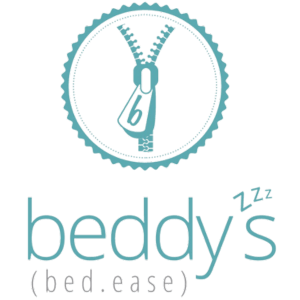eCommerce Accounting Services
with LedgerGurus
Save time, money & hassle with accountants who specialize in ecommerce.
I don’t know how much inventory I have or what it’s worth.
I’m not sure what my cost of goods sold (COGS) is or how to find out.
I don’t know if I’m doing my sales tax properly, and I need help.
I think I’m selling profitably but I’m not sure, and I don’t have systems in place to find out.
I’m selling on more than one sales channel, but I’m not sure how to see which one is most profitable.
My accountant doesn’t get it and is making mistakes that are costing me time and money.
If so, we can help you to solve these problems.
We've helped hundreds of US-based ecommerce businesses take control of their financials.
“LedgerGurus has helped… us know where we need to steer the ship. They give us numbers we trust and we know are accurate.”

“They are used to doing e-commerce [accounting]. . .This team knows exactly what they are doing.”

“I have confidence when we’re giving someone a P&L or a balance sheet it’s good . . . the numbers are spot on.”

Outsource your accounting, so you can focus on what you do best.
You focus on growing your business and living your life while we look after the numbers. Here’s how we do that:
(If on mobile, tap the boxes for more information about the services.)
The Foundation of Your Accounting
This is critically important.
Layering all other accounting pieces onto it for financial clarity.
Our team ensures this data is recorded in a timely, accurate way.
Provides Visibility
Reconciling sales channels and payment processors provides vital insights into channel activities, often lost due to transparency issues.
These insights empower confident, informed decision-making.
Biggest Expense for an eCommerce Business
Sales don’t drive your business, gross profit does.
Our team calculates your COGS and ensures you understand your gross profit position, so you can make key business decisions.
Inventory is Your Greatest Asset
Our guided inventory service meets you where you are and guides you to where you want to be.
Our accrual approach saves you as much time as possible, while providing accurate numbers.
Financial Statement Deliverables
We provide you with a detailed Balance Sheet and Profit & Loss Statement by the 20th of each month.
We’ll then guide and show you how to dissect & analyze the data to make key business decisions.
Monthly Meeting with Your Dedicated Accountant
You will be guided with ongoing financial insight into your business.
You’ll learn to analyze the data to make informed, data-driven decisions, instead of having to guess.
Additional Services Available
Sales Tax Can Be a BEAST!
It becomes an even bigger issue as you reach nexus in more and more states.
Our sales tax services can include filing sales tax returns, submitting payments, registering for sales tax permits, and setting up sales tax software.
Get an IMS that Actually Works
Spending the money to implement an IMS is useless if you don’t end up with a tool that gives you accurate numbers.
Our team provides set up & implementation, as well as training and troubleshooting.
Get Payroll Accuracy & Timeliness
Payroll processes can expose you to compliance risk and managing that risk can be time-consuming and stressful.
Our payroll service will give you and your team confidence in payroll accuracy and timeliness.
Eliminate Risks to Your Business
Partnering with us safeguards your business from fraud and asset misappropriation, particularly in bill pay.
We implement robust controls for peace of mind, protecting your business and employees.
Optimize A/R for Cash Flow & Vendor Management
Having your A/R processes done correctly and timely affects cash flow tremendously.
Our team ensures an accurate A/R balance so you can easily see which vendors are paying and which need collection services.
Bookkeeping Rescue
Are you behind in your bookkeeping and accounting?
You’re not alone.
We can bring your records up to date, as well as go back and clean up old work to ensure it’s accurate for a reasonable price.
It’s touch. It’s experience. It’s relationships. It’s results.
All in one beautiful package.
Common attributes of our clients
US-based
eCommerce sellers
Founders, owners, C‑suite members
Profit-minded and value decision-making based on sound financials
Seek an ecommerce accounting expert for strategic partnership to enhance business growth
Channels We Support
Your time is important.
Is your time best spent on your accounting?
If the answer is no, let us focus on your accounting, so you can focus on growing your business & increasing your profits.
eCommerce Specialized
We want to help you mature & advance your business. We do that by combining specialized eCommerce accountants, proven processes, and technology solutions to help you grow.
A Team To Fit Your Needs
You don’t just get an accountant or a bookkeeper. You get an entire team of experts with years of eCommerce accounting experience & knowledge to help you succeed.
Accurate Guidance
We are here to grow with you and guide you through your ecommerce business decisions with accurate, dependable numbers. Our process and services are flexibly structured in order to accommodate your specific needs.
Timely Answers
We understand the needs of our ecommerce clients. We provide direct, timely answers to questions & concerns via the best technology to improve your experience.
We are not in the accounting business…
We are in the business of helping other businesses succeed.
We are in the business of seeing that founders achieve their dreams.
We are in the business of enabling job growth.
We are in the business of supporting the American Dream!
Accounting is how we do this.
Here’s our promise to you
We provide timely, accurate financials that unlock critical insights. We then guide you through the process of using those insights to make informed, data-driven decisions.
Get results like these
FAQs
How much is this going to cost?
Your business is unique and has unique needs. We build our packages to solve your specific frustrations, starting at $350/month.
Can you handle all of my accounting?
YES! LedgerGurus is set up to either be your complete outsourced accounting solution or simply fill in gaps in your current processes. We specialize in everything from bookkeeping to AP, AR, inventory, payroll, sales tax services and inventory management software implementations.
Can you help me if I sell internationally?
Absolutely! We can definitely help you manage the finances for your international sales channels and foreign currency pieces.
Are your accountants certified?
All of our accountants have either accounting or finance degrees and are Certified Public Accountants (CPA) or Certified Management Accountants (CMA).
Can you implement an inventory management software?
Inventory management software (IMS) can be a game changer for ecommerce businesses. We can and do implement inventory tools all the time for our clients.
Do you do income tax returns?
No. We are passionate about helping business owners build their business with better numbers. We best serve our clients when we focus our efforts on their day-to-day accounting and decision-making. For this reason, we have chosen to not do income tax returns.
Here’s how to become a client
Application
Fill out the form at the bottom of this page to apply to work with us.
Discovery Call
If it looks like we’re a good fit, we’ll meet to take a deep dive into your business, so we understand your needs and concerns.
Proposal
If we’re a good fit for your business and can solve your needs, we’ll provide you with a proposal.
Onboarding
Our onboarding process ensures we understand your business and provide the best possible service to meet your needs.
Ongoing Services
Relax and we’ll take care of the rest. Your dedicated accounting manager will review your financials monthly and guide you in making sound business decisions.
Let’s get the ball rolling!
Are you tired of the hassle of accounting? Let us take it off your plate, so you can focus on growing your business and increasing your profits.
Apply to work with us.









